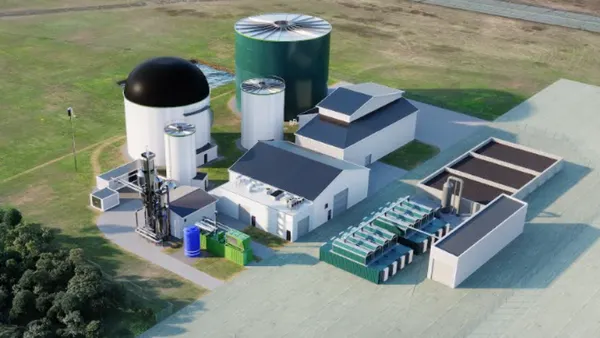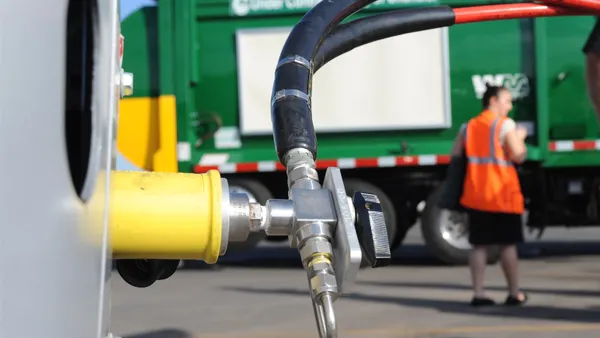Dive Brief:
- On Wednesday, Entsorga West Virginia held a ceremony to announce the groundbreaking of the nation's first waste-to-solid fuel facility utilizing Mechanical Biological Treatment (MBT). The facility, which will be built in Martinsburg, WV, is expected to be open in early 2017.
- Through the MBT process, bio-mass, plastics, and other carbon-based materials will be extracted from solid waste and converted to a safe alternative fuel source. This EPA recognized "engineered fuel" will not be subject to the EPA incinerator rule, which allows the fuel to meet standards that other fuels cannot meet.
- The facility — which will be capable of producing about 50,000 tons of solid recovered fuel (SRF) annually — is a joint venture between Apple Valley Waste Technologies, Entsorga USA, and Chemtex International.
Dive Insight:
"This is a significant milestone for the United States and we are truly thrilled to be providing this proven technology to convert waste into an EPA recognized alternative fuel source," stated Pietro Cella Mazzariol, CEO & Director of Entsorga.
While this plant is the first of its kind in the United States, there are currently over 330 MBT plants in operation throughout Europe, processing over 30 million tons of municipal solid waste annually. Therefore, through observation of these plants, Entsorga is confident that the unique WTE process has an abundance of benefits.
Despite the unique SRF fuel that the Entsorga's plant will produce, which has been proven to generate emissions comparable to or less than traditional U.S. fossil fuels, the process will also significantly cut down on MSW reaching landfills. As a result, the facility will allow for a potential greenhouse gas emission reduction of 28,000 tons per year.
"I am pleased by this public-private partnership and look forward to the facility becoming operational in 2017," said SWANA CEO David Biderman, who was at Wednesday's groundbreaking ceremony with about 125 other attendees.










